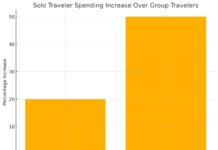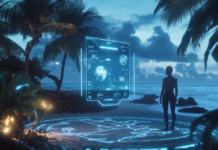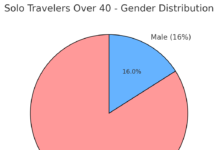
In recent years, the travel industry has undergone a significant transformation, driven by advancements in technology. One of the most revolutionary technologies that have impacted tourism is Artificial Intelligence (AI). AI’s integration into various aspects of the travel ecosystem has not only improved efficiency but also elevated the overall travel experience for tourists. In this article, we will explore some remarkable examples of AI in tourism that have reshaped the way we explore the world.
1. Personalised Recommendations
The days of generic travel recommendations are long gone, thanks to AI-powered personalised recommendations. Travel platforms now leverage machine learning algorithms to analyze vast amounts of data on travelers’ preferences, such as previous bookings, search history, and social media activity. By processing this information, AI can suggest tailored travel itineraries, accommodation options, and activities that align with each traveler’s interests and needs. This level of personalization ensures that tourists get the most out of their journeys, making it a win-win situation for both travelers and the travel industry.
2. Chatbots for Seamless Customer Support
When planning a trip or encountering issues during travel, tourists often seek prompt assistance. AI-powered chatbots have emerged as invaluable tools for delivering efficient and round-the-clock customer support. These chatbots can understand natural language, allowing tourists to ask questions and receive instant responses. Whether it’s booking confirmations, travel inquiries, or troubleshooting, AI chatbots can handle various tasks, easing the burden on human customer service agents and ensuring tourists’ needs are met promptly.
3. Enhanced Travel Safety and Security
AI has been instrumental in enhancing travel safety and security, which is of paramount importance for tourists. At airports, facial recognition technology, a subset of AI, streamlines check-in processes and enhances border security by identifying individuals more accurately. Additionally, AI-driven analytics monitor security footage in airports, train stations, and tourist attractions to identify suspicious behavior and potential threats proactively.
4. Augmented Reality (AR) Tour Guides
Traditional tour guides are being complemented, if not replaced, by AI-driven augmented reality tour guides. Tourists can now explore historical sites, museums, and landmarks with AR-powered applications on their smartphones or AR glasses. These applications superimpose relevant information onto real-world surroundings, providing tourists with an immersive and informative experience. AR tour guides not only offer factual information but can also bring historical events and stories to life, making learning more engaging and enjoyable.
https://www.exampletravelinnovations.com/ar-tour-guides
5. Price Optimization and Demand Forecasting
AI plays a vital role in optimizing prices for flights, accommodation, and other travel services. Machine learning algorithms analyze market trends, demand patterns, and external factors to adjust pricing in real-time. This dynamic pricing strategy benefits both tourists and service providers, ensuring that travelers get the best deals while businesses can maximize their revenues.
6. Language Translation and Interpretation
Traveling to foreign countries with language barriers can be challenging. AI-driven language translation and interpretation tools have bridged this gap, enabling tourists to communicate effectively with locals. From translating restaurant menus to facilitating conversations with locals, these AI language tools have become indispensable travel companions, fostering cultural exchange and eliminating communication hurdles.
7. Virtual Reality (VR) Destination Previews
Before visiting a destination, tourists can now have a sneak peek through virtual reality (VR) destination previews. AI-powered VR applications can recreate stunning 360-degree views of tourist hotspots, allowing travelers to explore and evaluate potential destinations from the comfort of their homes. This technology not only assists in travel planning but also kindles excitement and anticipation for the upcoming trip.
Conclusion
The integration of AI into the tourism industry has undoubtedly transformed the way people experience travel. From personalized recommendations and AI chatbots for customer support to enhanced safety measures and immersive AR/VR experiences, AI continues to revolutionize the travel sector. As technology advances further, we can expect even more innovative and exciting AI-driven solutions that will continue to enhance and elevate the tourism experience for globetrotters worldwide.
Reach out to us at theluxurystoryteller@gmail.comfor more information or to reach some of our 150,000 + social media audience send a message to https://www.instagram.com/theluxurystoryteller/

























